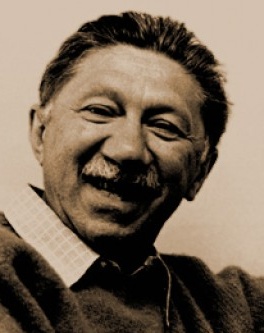Related Research Articles
Self-esteem is confidence in one's own worth or abilities. Self-esteem encompasses beliefs about oneself as well as emotional states, such as triumph, despair, pride, and shame. Smith and Mackie (2007) defined it by saying "The self-concept is what we think about the self; self-esteem, is the positive or negative evaluations of the self, as in how we feel about it."

Positive psychology is the scientific study of what makes life most worth living, focusing on both individual and societal well-being. It studies "positive subjective experience, positive individual traits, and positive institutions...it aims to improve quality of life." It is a field of study that has been growing steadily throughout the years as individuals and researchers look for common ground on better well-being.

Psychology is an academic and applied discipline involving the scientific study of human mental functions and behavior. Occasionally, in addition or opposition to employing the scientific method, it also relies on symbolic interpretation and critical analysis, although these traditions have tended to be less pronounced than in other social sciences, such as sociology. Psychologists study phenomena such as perception, cognition, emotion, personality, behavior, and interpersonal relationships. Some, especially depth psychologists, also study the unconscious mind.
Motivation is the reason for which humans and other animals initiate, continue, or terminate a behavior at a given time. Motivational states are commonly understood as forces acting within the agent that create a disposition to engage in goal-directed behavior. It is often held that different mental states compete with each other and that only the strongest state determines behavior. This means that we can be motivated to do something without actually doing it. The paradigmatic mental state providing motivation is desire. But various other states, such as beliefs about what one ought to do or intentions, may also provide motivation. Motivation is derived from the word 'motive', which denotes a person's needs, desires, wants, or urges. It is the process of motivating individuals to take action in order to achieve a goal. The psychological elements fueling people's behavior in the context of job goals might include a desire for money.

Abraham Harold Maslow was an American psychologist who created Maslow's hierarchy of needs, a theory of psychological health predicated on fulfilling innate human needs in priority, culminating in self-actualization. Maslow was a psychology professor at Brandeis University, Brooklyn College, New School for Social Research, and Columbia University. He stressed the importance of focusing on the positive qualities in people, as opposed to treating them as a "bag of symptoms". A Review of General Psychology survey, published in 2002, ranked Maslow as the tenth most cited psychologist of the 20th century.
Content theory is a subset of motivational theories that try to define what motivates people. Content theories of motivation often describe a system of needs that motivate peoples' actions. While process theories of motivation attempt to explain how and why our motivations affect our behaviors, content theories of motivation attempt to define what those motives or needs are. Content theory includes the work of David McClelland, Abraham Maslow and other psychologists.

Mihaly Robert Csikszentmihalyi was a Hungarian-American psychologist. He recognized and named the psychological concept of "flow", a highly focused mental state conducive to productivity. He was the Distinguished Professor of Psychology and Management at Claremont Graduate University. He was also the former head of the department of psychology at the University of Chicago and of the department of sociology and anthropology at Lake Forest College.

Terror management theory (TMT) is both a social and evolutionary psychology theory originally proposed by Jeff Greenberg, Sheldon Solomon, and Tom Pyszczynski and codified in their book The Worm at the Core: On the Role of Death in Life (2015). It proposes that a basic psychological conflict results from having a self-preservation instinct while realizing that death is inevitable and to some extent unpredictable. This conflict produces terror, which is managed through a combination of escapism and cultural beliefs that act to counter biological reality with more significant and enduring forms of meaning and value.

Self-determination theory (SDT) is a macro theory of human motivation and personality that concerns people's innate growth tendencies and innate psychological needs. It pertains to the motivation behind people's choices in the absence of external influences and distractions. SDT focuses on the degree to which human behavior is self-motivated and self-determined.
Attribution is a term used in psychology which deals with how individuals perceive the causes of everyday experience, as being either external or internal. Models to explain this process are called attribution theory. Psychological research into attribution began with the work of Fritz Heider in the early 20th century, and the theory was further advanced by Harold Kelley and Bernard Weiner. Heider first introduced the concept of perceived 'locus of causality' to define the perception of one's environment. For instance, an experience may be perceived as being caused by factors outside the person's control (external) or it may be perceived as the person's own doing (internal). These initial perceptions are called attributions. Psychologists use these attributions to better understand an individual's motivation and competence. The theory is of particular interest to employers who use it to increase worker motivation, goal orientation, and productivity.
Self-acceptance is acceptance of self.

A goal is an idea of the future or desired result that a person or a group of people envision, plan and commit to achieve. People endeavour to reach goals within a finite time by setting deadlines.

Determination is a positive emotional feeling that involves persevering towards a difficult goal in spite of obstacles. Determination occurs prior to goal attainment and serves to motivate behavior that will help achieve one's goal. Empirical research suggests that people consider determination to be an emotion; in other words, determination is not just a cognitive state, but rather an affective state. In the psychology literature, researchers have studied determination under other terms, including challenge and anticipatory enthusiasm; this may explain one reason for the relative lack of research on determination compared to other positive emotions.
In psychology, Posttraumatic growth (PTG) is a concept describing positive psychological change experienced as a result of struggling with highly challenging, highly stressful life circumstances. These circumstances represent significant challenges to the adaptive resources of the individual, and pose significant challenges to the individual's way of understanding the world and their place in it. Posttraumatic growth involves "life-changing" psychological shifts in thinking and relating to the world and the self, that contribute to a personal process of change, that is deeply meaningful.

Sport psychology was defined by the European Federation of Sport in 1996, as the study of the psychological basis, processes, and effects of sport. Otherwise, sport is considered as any physical activity where the individuals engage for competition and health. Sport psychology is recognized as an interdisciplinary science that draws on knowledge from many related fields including biomechanics, physiology, kinesiology and psychology. It involves the study of how psychological factors affect performance and how participation in sport and exercise affect psychological and physical factors. Sport psychologists teach cognitive and behavioral strategies to athletes in order to improve their experience and performance in sports. In addition to instruction and training of psychological skills for performance improvement, applied sport psychology may include work with athletes, coaches, and parents regarding injury, rehabilitation, communication, team building, and career transitions.
Self-esteem can be defined as how favorably individuals evaluate themselves. According to Leary, self-esteem is the relationship between one's real self and one's ideal self, feeding off of favorable behaviors. It refers to an individual's sense of their value or worth, or the extent to which a person values, approves of, appreciates, prizes, or likes themselves. Self-esteem is generally considered the evaluative component of the self-concept, a broader representation of the self that includes cognitive and behavioral aspects as well as evaluative or affective ones. There are several different proposals as to the functions of self-esteem. One proposal is that it satisfies the inherent need to feel good about oneself. Another is that it serves to minimize social rejection. Self-esteem is also known as a way for a person to remain dominant in relationships. Self-esteem is known to protect people from potential fear that arises from the prospect of death. Self-esteem helps motivate people to achieve their goals – high self-esteem leading to coping in situations and low self-esteem leading to avoidance.
Self-complexity is a person's perceived knowledge of themself, based upon the number of distinct cognitive structures, or self-aspects, they believe to possess. These self-aspects can include context-dependent social roles, relationships, activities, superordinate traits, and goals of the individual, which combine to form the larger, associative network of their self-concept. According to self-complexity theory, an individual who has a number of self-aspects that are unique in their attributes will have greater self-complexity than one who has only a few self-aspects, or whose self-aspects are closely associated to one another. In other words, self-complexity may invoke the question, “How full is the self-concept”?
Human Givens is the name of a theory in psychotherapy formulated in the United Kingdom, first outlined by Joe Griffin and Ivan Tyrrell in the late 1990s, and amplified in the 2003 book Human Givens: A new approach to emotional health and clear thinking. The human givens organising ideas proffer a description of the nature of human beings, the 'givens' of human genetic heritage and what humans need in order to be happy and healthy based on the research literature. Human Givens therapy draws on several psycho therapeutic models, such as motivational interviewing, cognitive behavioural therapy, psychoeducation, interpersonal therapy, imaginal exposure therapy and NLP such as the Rewind Technique, while seeking to use a client's strengths to enable them to get emotional needs met.

Optimism is an attitude reflecting a belief or hope that the outcome of some specific endeavor, or outcomes in general, will be positive, favorable, and desirable. A common idiom used to illustrate optimism versus pessimism is a glass filled with water to the halfway point: an optimist is said to see the glass as half full, while a pessimist sees the glass as half empty.

Paul T. P. Wong is a Canadian clinical psychologist and professor. His research career has gone through four stages, with significant contributions in each stage: learning theory, social cognition, existential psychology, and positive psychology. He is most known for his integrative work on death acceptance, meaning therapy, and second wave positive psychology. He has been elected as a fellow for both the American Psychological Association and the Canadian Psychological Association.
References
- ↑ "UCR Researcher Among the Winners of Psychology's Largest Monetary Prize for Research on Happiness]". University of California, Riverside Newsroom. 2002. Retrieved 12 November 2015.
- ↑ Kennon M. Sheldon (2004). Optimal Human Being: An Integrated Multi-level Perspective. Psychology Press. ISBN 9781135636258.
- ↑ Sheldon, Kennon M.; Joiner, Thomas; Williams, Geoffrey (2013-05-01). Self-Determination Theory in the Clinic: Motivating Physical and Mental Health. Place of publication not identified: Yale University Press. ISBN 9780300199833.
- ↑ "Kennon M. Sheldon Curriculum Vita".